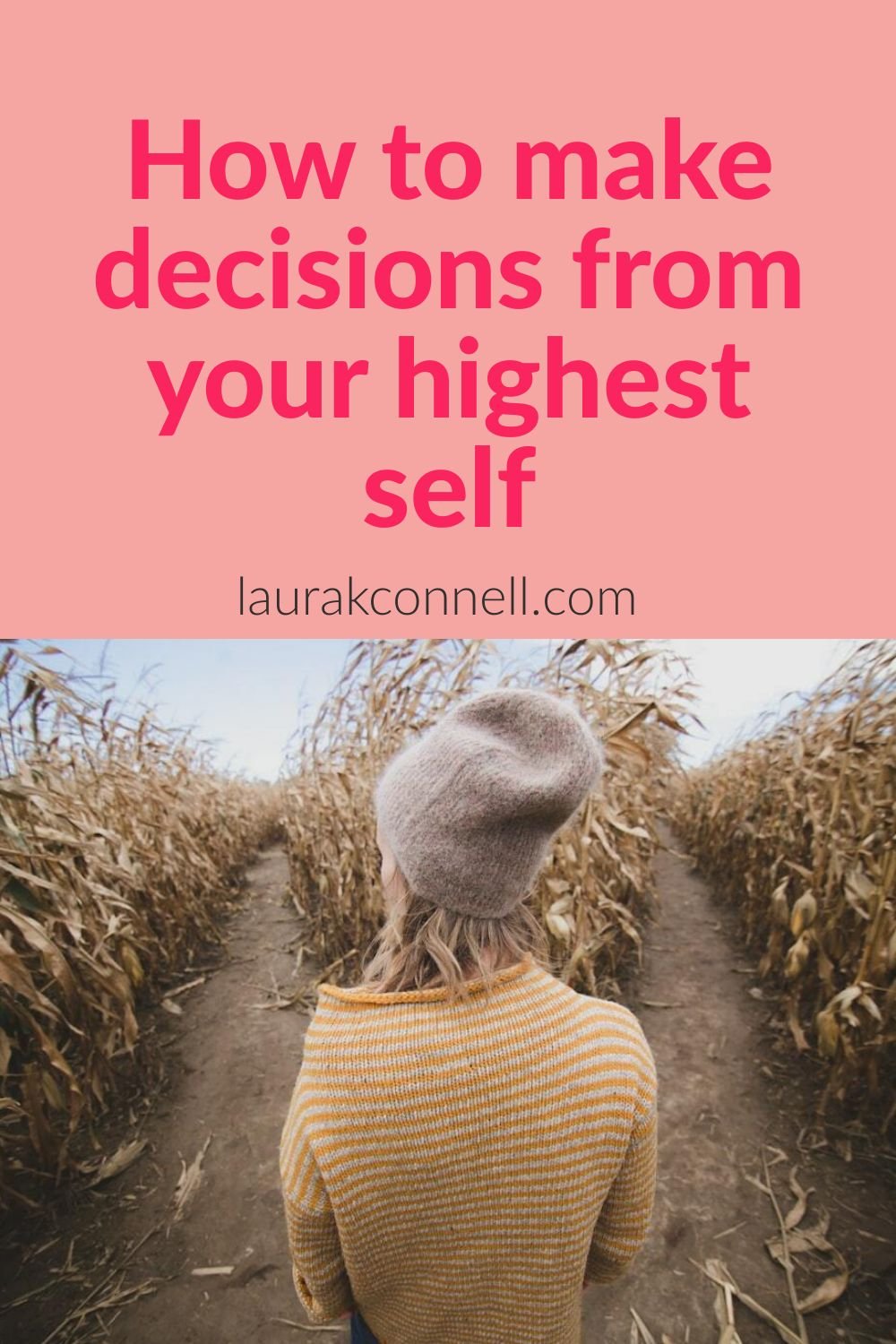How to make decisions from your highest self
If you’ve had a traumatic past, you may find it difficult to make decisions. Instead of coming from a calm and centered place, your choices are made under duress.
Instead of assessing what’s best for you, your decision-making criteria prioritizes other peoples’ needs. You believe what’s best for others is best for you because of your external orientation.
An external focus puts your attention on others and what they think of you rather than on yourself and your own needs. It’s often adopted in childhood when you had to please your parents to get your need for safety met.
People who grew up in a healthy home make decisions based on their own wants and needs. After that, they consider how things will impact those around them, but that’s not the primary concern.
However, when you grow up in an abusive or neglectful home, you prioritize others’ needs and wants. You may not even ask what is good for you, because you’ve been conditioned not to.
Don’t make decisions from urgency
You may also make decisions from a sense of urgency. Rather than waiting until you feel the sense of calm that accompanies sound decisions, you take action from a panicked state.
This is often a sign of a lack of self-trust. It is also evidence of an unhealed inner child at the helm.
This is common among childhood trauma survivors who felt alone in their decision-making. They received little to no guidance and had to rely on themselves for the answers.
This is terrifying to a child and that child still lives within you. It bears the burden of your decision-making in a way that feels panic-inducing rather than empowering.
The child needs to get things over with because the unknown was a scary place to dwell. You needed certainty to feel safe, so a decision - any decision - felt better than waiting.
If you make decisions in order to get rid of bad feelings, that’s your inner child at work. For example, you set a boundary with your toxic mother and the guilt sets in so you let her have her way.
You’ve made the choice that will help your inner child feel safe from harm in the short term. (Because you won’t incur mom’s wrath).
However, this decision will hurt you in the long run because nothing in the relationship will change. Not to mention that your mother encourages your guilt for precisely this reason.
You may experience brain fog and a desire to let someone else make the decision. These are more signs of the disempowered inner child who got punished indiscriminately and felt they could never do anything right.
Connect with your higher self
When you feel a compulsion to act and make decisions rashly, that’s a red flag. It’s time to step back and take a deep breath.
Because of your past, it feels impossible to resist the urge to do something to change your state. However, attending to yourself and your nervous system is your first priority.
Rather than taking an action to alter your feelings, tend to them instead. Accept your emotions and notice what they tell you rather than rushing to change them.
Assess the long-term impact of your decisions. Will this improve your life down the line, or are you simply trying to avoid someone’s displeasure in the short term?
Rash decisions can also be made when the inner child confuses empowerment with lashing out. It may feel that giving someone a piece of their mind is the right thing to do.
This brand of self-righteousness comes from a disempowered inner child who believes it won’t be heard unless it roars. The healed inner child will speak from a calm, centered place and won’t place as much importance on feeling “heard”.
It will have learned to attend to its own needs so the desire for outside validation dissipates. The need to feel seen will get fulfilled from the inside and from the new people in your circle who understand.


